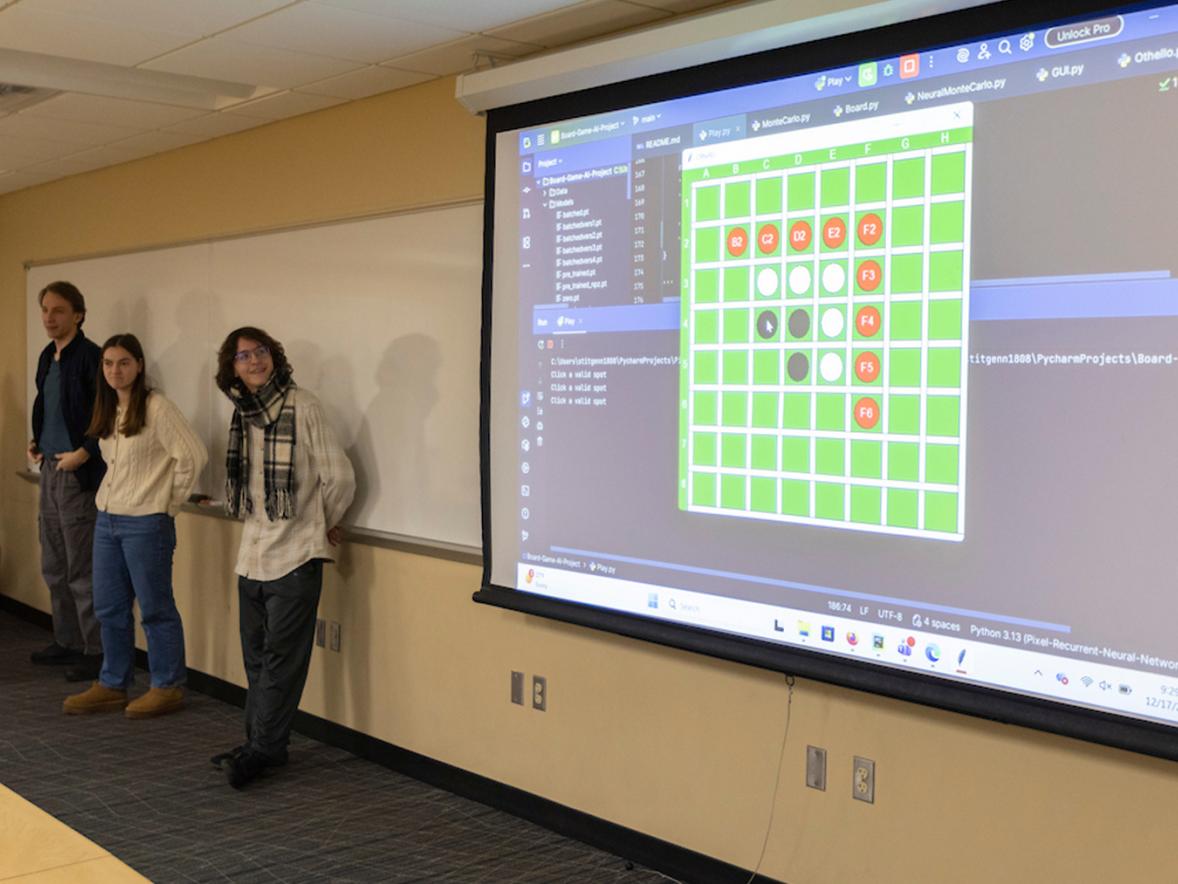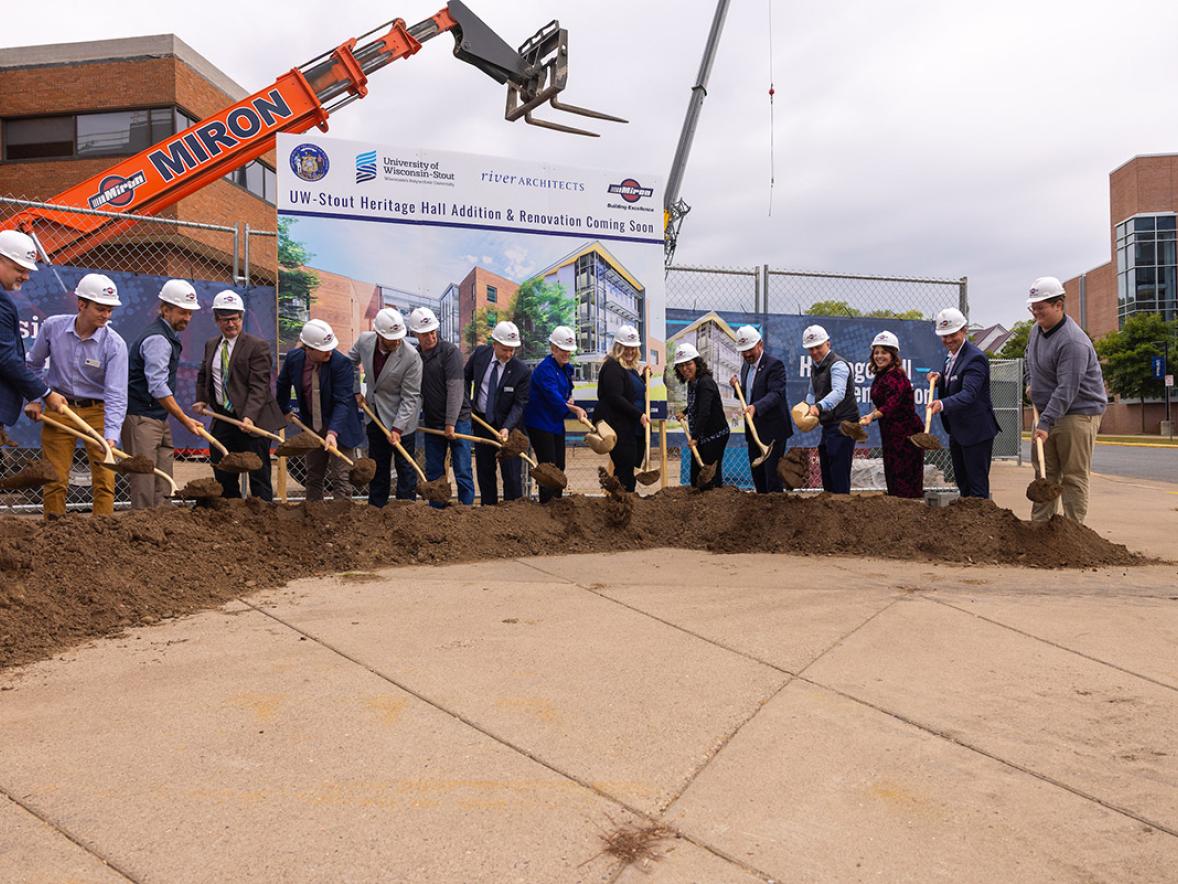Students in UW-Stout’s Honors College recently joined efforts to support refugees in Wisconsin through a service learning project. And they will build a greater understanding of what life is like for people fleeing their home countries to reach safety at a panel discussion, Afghan Refugees in Wisconsin, at 6:30 p.m. on Tuesday, April 12, virtually in Zoom.
The discussion is open to the public.
The panelists, from organizations in Eau Claire and Wausau helping Afghan refugees, will discuss resettlement efforts in Wisconsin:
- Bea Evans, founder of Welcoming New Neighbors, Eau Claire
- Gwendolyn Paul, executive director for New Beginnings for Refugees, Wausau
- Eric Yonke, co-sponsorship coordinator of ECDC Multicultural Community Center, Wausau
- Sayed Nasrullah Nabil, former employee of Educational and Cultural Center, sponsored by the U.S. Embassy, Afghanistan
- Professor Emeritus Donald Mowry, UW-Eau Claire
- Wisconsin journalist Julian Emerson, Eau Claire
Professor Lopamudra Basu, UW-Stout’s English, philosophy and communication studies department, will moderate the panel discussion.
Service-learning builds life-long skills
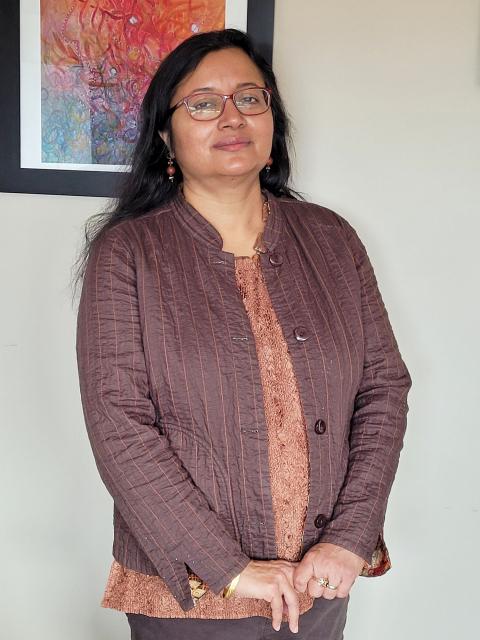
The panel is part of a unit on Afghan refugees in the Honors Composition and Honors Multicultural American Literature courses taught by Basu.
Honors students are discussing refugees as a unique creation of modern 20th century states, from refugees created by the Indian Partition and the creation of Israel to refugees resulting from proxy wars resulting from the Cold War, Basu explained.
They are studying essays by literary theorists and philosophers like Edward Said, Hannah Arendt and Kelly Oliver; and reading excerpts from “Somewhere in the Unknown World: A Collective Refugee Memoir” by Kao Kalia Yang and chapters from “One Story Thirty Stories: An Anthology of Contemporary Afghan American Literature” by Zohra Saed and Sahar Muradi.
Basu includes the Afghan unit in the multicultural literature course to extend the unit on Asian and South Asian American literature, with a focus on Muslim Americans and the racialization of religion after 9/11 and the War on Terror. “Students are generally aware but not very engaged with current events. Reading stories about refugees make these events real for them. Most of them want to do something to help,” she said.

So, she decided to include a service learning aspect for her 45 Honors students and researched the needs of Afghans arriving in Wisconsin. After discussing with students how they’d like to help, they held a pantry collection drive. Each student contributed a pantry item, and Basu recently delivered the items to Lutheran Social Services, the organization overseeing resettlement of refugees in Eau Claire.
First-year students Ava Bawek and Sam Gebhardt are in the composition course. Gebhardt, a computer networking and information technology major from Oregon, Wis., thinks the class is unlike any other he’s taken.
“We focus solely on one topic, that being refugees. Coming into the class I had very little knowledge of refugees, and throughout the semester’s coursework my eyes were quickly opened to the lives of millions of misplaced people. The heart-wrenching stories we have read will stick with me forever, and I hope the food drive we did as a class had even a small impact on the local refugees,” he said.
Bawek, a dietetics major from Spring Valley, believes the class and the pantry collection drive had a personal impact on her. “It is always difficult to learn about things that are so heartbreaking and at times uncomfortable, as how refugees are treated and the hardships they endure,” she said. “I feel privileged as I learn about their conditions and think about where I am – going to a university and living in a dorm room with no food insecurity.
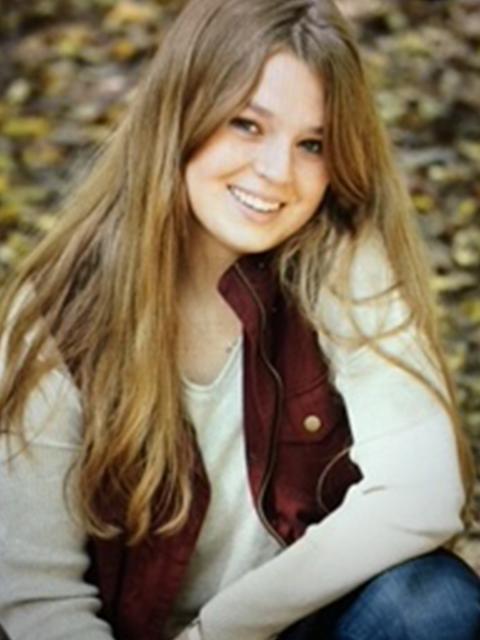
“I feel humbled as I learn more about what refugees go through, and my heart goes out to those who are discriminated against for situations they were thrust into,” Bawek added. “I firmly believe this will help me in my future health care career as it has already helped me to become a more understanding and compassionate person. I thank everyone involved for my opportunity to learn more about their tribulations.”
Basu understands that service learning, even if it is something small like collecting pantry items, is an active learning strategy. “It enables students to transfer empathy into action. The panel will be an opportunity to meet with people on the ground working with refugees and to hear firsthand what is going on. I am hopeful it will leave a mark on students and give them strategies of civic engagement as a lifelong skill,” she said.
Working on a national level to help refugees in Wisconsin
ECDC Multicultural Community Center in Wausau is a nonprofit organization that resettles refugees. ECDC is one of nine national resettlement organizations that partners with the U.S. government to manage refugee assistance.
“When a refugee family or individual is assigned to us from our national office in Arlington, Va., we secure housing, organize resources to help them set up a new home and get them enrolled in appropriate public benefits programs. We also organize co-sponsorship teams from the community to assist during their first year in the community,” Yonke said.
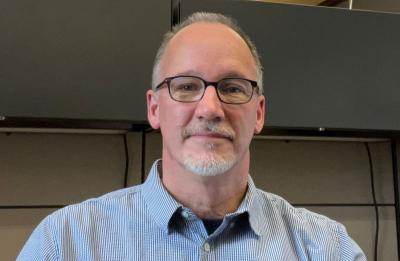
From the panel discussion, Yonke is hoping that people will learn how refugees come to ECDC and how they can help. Recently, in a meeting with the state refugee coordinator, ECDC learned that there are more than 800 refugees in Wisconsin under the Afghanistan Placement and Assistance program.
Wisconsin has six resettlement offices: Madison, Green Bay, the Fox River Valley, Wausau and two in Milwaukee. These offices have handled the vast majority of the assistance and can place refugees within 50 miles of their location.
A few individuals and families have come to Wisconsin as well via the Sponsor Circle Program, recently approved by the federal government, Yonke explained.
“We like to let everyone know that our goal is self-sufficiency for the refugees,” he said. “Our work is to help them arrive, get settled and then start building a life for themselves. We have them in U.S. cultural orientation classes shortly after arrival, as well as English as a Second Language classes, and we have them working with job services as quickly as possible.
“Some people think these families are getting some large handout from the government. They are not,” he explained. “Our office receives a one-time allotment of $1,225 per person to help them pay for rent, utilities and food. After that, they are reliant on public assistance as they seek out employment.”
Yonke wants people to know they can help in a variety of ways, from volunteering and donating to the resettlement offices to help care for the refugees' needs, to joining a co-sponsorship team of people to partner to support a family for nine months.
ECDC also seeks community partnerships and has recently partnered with the nonprofit New Beginnings for Refugees. “We work closely with New Beginnings because they organize donation drives for furniture and household goods as well organize volunteers to help families with short-term transportation needs and ESL tutoring,” Yonke said.
UW-Stout’s Honors College offers more than 40 innovative courses and provides students with academic opportunities that emphasize discussion outside of the classroom. More than 550 students are involved in the Honors College, representing every major across campus.






